Prensa
Nuevos informes, alertas urgentes, análisis, opiniones de expertos y otros recursos de IWGIA.
Climate
Indigenous peoples in climate action
Indigenous peoples across the world face the consequences of climate change. Indigenous peoples must, therefore, be heard and included in global, national and local climate action.
Indigenous
...Customary Land Tenure: Case Study in Sar Pauk Village

The study was conducted by POINT (Promotion of Indigenous and Nature Together) in Sar Pauk village, and especially emphasized on the customary land tenure of the village. The objective of the study is to identify and document customary land tenure of the village, including livelihoods, land
...Delivering on the Paris Promises: Combating Climate Change while Protecting Rights

The negotiations of the Paris Rule Book are critical to ensuring that the promises made in the Paris Agreement will be met – including the commitment of governments to respect, protect, and take into consideration existing human rights obligations.
The Indigenous World 2017

This yearbook gives a comprehensive update on the current situation of indigenous peoples and their human rights situation across the world, and offers an overview of the most significant developments in international and regional processes relating to indigenous peoples during
...Indigenous peoples are key in the implementation of the Paris Agreement

India: New book documents the non-implementation of the forest rights act for indigenous peoples

A decade after the passing of the Forest Rights Act, the book by indigenous rights activits Gladson Dungdung “Adivasi and Forest Rights: Grassroots reality of Forest rights in Jharkhand” documents how government agencies, industry lobby and even the Naxal
...IWGIA and Forests of the World foster debate on human rights and climate change
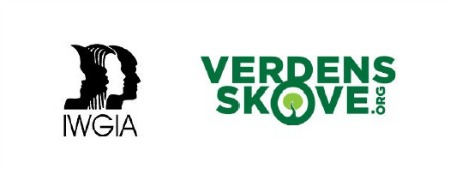
Russia: Administration orders mass reindeer killing and fast-tracks gas extraction

On Yamal Peninsula, the administration has announced that it wants to slaughter 250,000 of the currently 700,000 reindeer living on the peninsula. At the same time, the Russian Ministry of Natural Resources is speeding up the development of new gas fields in the Arctic. Between June and
...Russia: Tailings pipe spill at Norilsk Nickel threatens Taimyr's rivers and lakes

At the world's largest nickel mine and smelter, Norilsk Nickel on Taimyr peninsula in Norther Siberia, a severe pipeline spill has occured. Taimyr is home to some 20,000
...Indigenous peoples’ rights violated in the name of conservation

Nepali Indigenous Peoples' Perspective on Climate Change and REDD/REDD+

Indigenous Peoples, Communities of African Descent, Extractive Industries

The Inter-American Commission on Human Rights (IACHR) addresses in this report State obligations with regard to extraction, exploitation, and development activities concerning natural resources. Through the implementation of its monitoring mechanisms, the Commission has consistently received
...The Indigenous World 2016

This yearbook gives a global update on the current situation of indigenous peoples and their human rights and provides an overview of the main developments that have affected indigenous women and men in the course of 2015. In 54 country specific reports and 12 articles on international
...Land, Forest and Indigenous Peoples' Rights in Relation to Climate Change and REDD (Policy and Program Analysis)

Nepal Federation of Indigenous Nationalities (NEFIN), together with the IWGIA, AIPP, TEBTEBBA and FPP, has been conducting programs on Climate Change- REDD Partnership Program. As part of this program, a research study has already been carried out with detailed reviews and analysis of the
...Special Rapporteurs discuss impact of free trade agreements in Peru
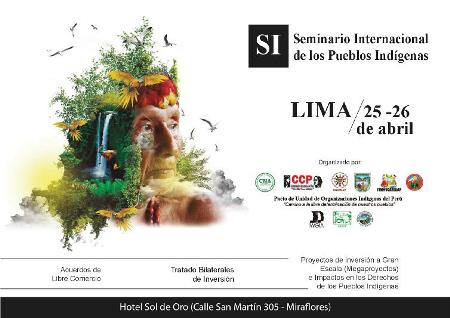
Successive UN Special Rapporteurs on the rights of indigenous peoples have expressed serious concerns in relation to the growing negative impacts of foreign investment on rights of indigenous peoples worldwide.
These investments often involve extraction of natural resources and large
...Mining and Indigenous Peoples in Colombia

This desk study documents the adverse impacts on indigenous communities from coal mining in the regions of la Guajira and Cesar, home to 90 percent of Colombia's coal production as well as several indigenous peoples such as the Wayuu, Yukpa and
...Climate Change and Indigenous Peoples: Policies and Practices in Nepal

The problem of climate change is a relatively new pressing global concern. Efforts for mitigation and adaptation from its effects are drawing attention of all. Although indigenous peoples are not responsible for the causes of climate change, they are the ones who are at the forefront of its
...Climate Change Mitigation strategies and evictions of Indigenous peoples from their ancestral land. The Case of Tanzania.

Eviction of Indigenous Peoples from their ancestral lands is one of the most destructive and degrading mitigation strategy performed by modern governments in developing countries to address climate change. Armed police and soldiers are used to forcefully evict indigenous peoples to pave the way
...Tanzania: Tanzanian Pastoralists Threatened. Evictions, Human Rights and Loss of Livelihood. IWGIA Report 23

The report explores the evictions of pastoralists and other conflicts over pastoralists’ land in Tanzania, with focus on the past decade.
Although most of these evictions and land based conflicts have been documented, the associated human and legal rights violations have increasingly
...NGOs: Climate initiatives must not include large hydropower projects
Paris, 3 December 2015
In a global manifesto released today, a coalition of more than 300 civil society organizations from 53 countries called on governments and financiers at the Paris climate talks to keep large hydropower projects out of climate initiatives such as the Clean
...No climate change solution without listening to the voices of the indigenous peoples

In Kenya and Tanzania, climate change is already causing both drought and floods. This has meant increasing scarcity of suitable land for farming and pasture and a decrease in food security. It has also increased the number of conflicts between pastoralists and other land users, seriously
...Kenya: Renewable Energy Projects and the Rights of Marginalised/Indigenous Communities in Kenya. IWGIA Report 21
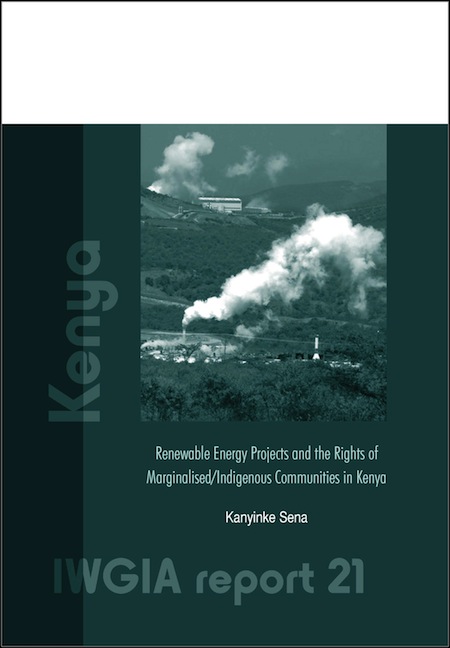
The fact that energy projects are green does not necessarily mean they accept and protect internationally-recognised human rights norms.
This report documents the adverse impact of Kenya’s goal to develop its renewable energy sector on indigenous peoples. It looks particularly at the
...Indigenous Peoples Major Group Position Paper on Proposed SDG Indicators

The global goals and targets for sustainable development have been adopted but indicators are still being formulated. Indicators define what will be measured, and thus how the goals and targets will be implemented. In this position paper Indigenous peoples point at some of their most central
...UNFCCC: Indigenous peoples' key demands for the Paris Agreement on Climate Change

Indigenous peoples representatives from all over the world have been following the negotiations of the forthcoming global climate change agreement, which will be adopted by the UN at the Conference of the Parties (COP21) in Paris at the end of the year.
On October 17,
Russia: Evenk community leader opposing UK based gold mining company sentenced to 5 years

On September 29, a City court in Blagoveshchensk, the capital of Russia’s Amur region has sentenced Sergey Nikiforov, former head of the village council of Ivanovskoye, Selemdzhinski district, to 5 years in penal colony and a fine of 16 million roubles under charges of bribery.
...Russia: Case against defender of sacred lake postponed

The next court hearing over the case of Sergey Kechimov, the guardian of the Imlor, a lake sacred to the Khanty people, will take place on 3 November. "Today a court hearing was held. Given that one of the witnesses on the part of "Surgutneftegaz" did not attend and, as in previous
...Russia: Evenks of Amur Region vow to stop UK based gold mining company

Indigenous residents of Ivanovskoye village in Selemdzhinski District in Amur Region in Russia's Far East are outraged by the plans of a UK based gold mining company to start an open cast gold mine less than two kilometres from their village without their consent. I village gathering
...Mission Saranda. A War for Natural Resources in India

Dedicated to the martyrs of Saranda Forest, who have sacrificed their lives to protect their ancestral land, territory and resources.
This book and the Saranda issue it highlights are of greatest national significance. Gladson Dungdung has performed a profound service by writing
...Human Rights Based Approach to Development as experienced in ten Indigenous communities in the Philippines

In the Philippines, diversity within commonality among indigenous peoples is in itself a very complicated situation. Moreover, indigenous peoples understand their rights enshrined in laws more as violations than enjoyment, while local State authorities find difficulty in bridging the gap of
...In defense of our right to our mineral resources in our Ancestral Territories
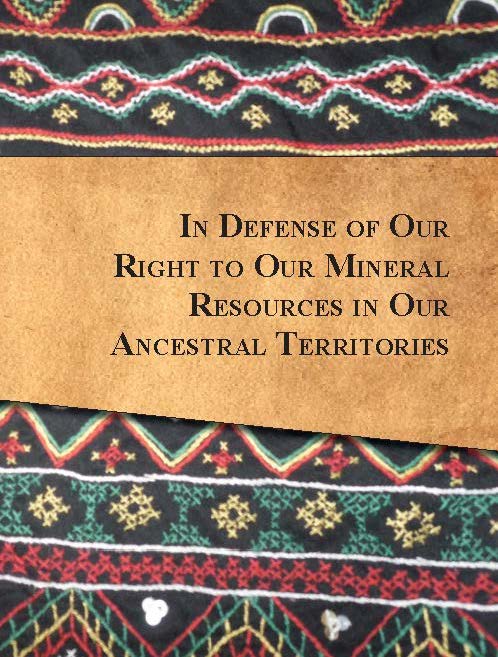
WE ARE BLAANs
The Blaan is among the 18 major indigenous peoples in Mindanao, collectively referred to as Lumads. They number about 450,0001 concentrated in the mountain ranges of South Cotabato (100,000) and Davao del Sur (95,000) with the third largest but considerably
Russia: Planned oil terminal on Taimy threatens pollution of Yenisey river

The oil company "Taimyrneftegazdobycha" is planning to build an oil terminal on the Yenisei with a throughput capacity of five million tons per year. Environmentalists and indigenous peoples say that the company is not prepared for working in Arctic conditions and the elimination of possible
...Russia: Guardian of Khanty sacred lake facing prison for defending himself against stray dogs brought in by oil workers

In West Siberia’s Khanty-Mansi Autonomous District, an indigenous Khanty elder, who is the keeper of the sacred lake Imlor, is facing up to two years behind bars after defending himself and his reindeer against stray dogs which had been illegally brought into the area by oil workers.
...Shifting Cultivation, Livelihood and Food Security: New and Old Challenges for Indigenous Peoples in Asia

The United Nations Declaration on the Rights of Indigenous Peoples was adopted by the UN General Assembly on 13 September 2007. Since then, the importance of the role that indigenous peoples play in economic, social and environmental conservation through traditional sustainable agricultural
...Russia: Evenks prevent diamond mining on sacred river in Yakutia

An indigenous Evenk community in the republic of Sakha (Yakutia) in Russia’s far east has stopped the mining company “Almazy Anbara” from starting a diamond mine on their sacred river. As reported by the Association of Indigenous Peoples of Yakutia, Yakutia’s Minister of nature protection of
...Russia: Chukchi community defends territorial rights against coal mining company

An indigenous obshchina (kinship-based community and cooperative) of indigenous Chukchi on Chukotka peninsula in the Russian Far East has successfully appealed a 2013 administrative decision depriving it of its territory and overturned a court ruling ordering the obshchina to
...Russia: Khanty reindeer herders standing their ground: "We have nowhere left to go"

In West Siberia's Khanty-Mansi Autonomous Area, 17 reindeer herder families are holding out against the oil company Gazprom-NNG, a subsidiary of Russia's gas giant Gazprom. The authorities have issues a concession without informing the traditional land owners. On 3 June, they will be
...Russia: Indigenous community on Sakhalin island observes large fish kill, suspects oil spill

Indigenous residents of Nekrasovka village in the North of Sakhalin island are desparate. This winter, the largely fish-dependent community has seen large-scale fish kill in the nearby Pomr bay, their traditional fishing ground. As a result, the population of the village located on the shore of
...Komi leader Nikolai Rochev: My dream of prosperity without oil

My name is Nikolay. I am of the Komi peoples and come from the region of the same name in the north of Russia. I will soon be visiting Canada and the city of Iqaluit in the lands of the Nunavummiut for the first time.
Nepal: help needed to reach remote indigenous communities affected by earthquake
The deadly 7.6 magnitude earthquake of 25 April 2015, with its epicenter in Barpak in Gorkha district, resulted in massive loss of human life and property in various parts of Nepal.
As of now the death toll is more than 8,000 with many more injured. According to government data, 134,864
...Russia: Khanty clans say "no" to oil companies

In West-Siberia’s Khanty-Mansi autonomous region, a region of the size of France, where much of Russia’s crude oil is extracted, a new conflict between indigenous Khanty reindeer herders and the powerful oil producers is unfolding. The Khanty are an indigenous nation of 30,000. Their language
...The Indigenous World 2015

Seven years after the adoption of the UN Declaration on the Rights of Indigenous Peoples, The Indigenous World 2015 looks at the most significant developments and setbacks for indigenous peoples’ rights at the national and international level during the previous year and at indigenous peoples’
...Russia: Denial of indigenous peoples' rights concerns UN Human Rights Committee

Securing indigenous and community land rights in the future we want

Land rights were a key part of the agenda at the Post-2015 Inter-Governmental Negotiations on SDGs and Targets held in New York recently. Inspired by the ethos that the
...Land Rights Indicators in the Post-2015 SDGs: Recommendations for Inter-Agency Expert Group & Other Policymakers

The success of the Post-2015 sustainable development goals (SDGs) will depend on the adoption of indicators that allow measuring progress towards targets and provide helpful information to policymakers. In preparation for the March 3-6, 2015 discussions at the UN in New York, the UN Statistical
...Significant focus on extractive industries at IACHR meetings in Washington

In recent years, cases involving indigenous peoples have become a focal point of the Inter-American Commission on Human Rights sessions’, and continued to take up a large proportion of the hearings this year. The
...Briefing Note: Ethnic Violence in Morogoro Region in Tanzania

In early 2015, Maasai and Datoga citizens living in the Morogoro region of Tanzania were victims of deadly, ethnic violence. According to reports from local media, the assaults were instigated by public figures interested in acquiring land, and state authorities have not intervened to protect
...Business and Human Rights. Indigenous Peoples' Experiences with Access to Remedy. Case studies from Africa, Asia and Latin America

The book addresses cases from each of these continents, examining the experiences of Indigenous peoples with access to remedy when their human rights are affected by corporate activities. By drawing from these experiences it seeks to inform the actions of corporate and State actors in relation
...A study on the socio-economic status of Indigenous peoples in Nepal

The present study aims to assess the poverty levels of the various indigenous groups in Nepal. It was developed to address the lack of existing disaggregated data and statistics on the socio-economic status of Nepal’s many indigenous groups. By presenting data on a broad set of socio-economic
...Russia: "Blow us up together with our sacred mountain!"

The below article by Shor activist Vladislav Tannagashev was originally published in Russian in late October 2014. In the meantime, the situation he describes has further deteriorated. The Shor village of Kazas has been entirely demolished, which just one roof left standing. Villagers have
...Secure and equitable land rights in the Post-2015 Agenda

This technical briefing authored by a number of international organizations working on food security, natural resources management and poverty eradication and endorsed by many local civil society organisations around the world strongly encourage governments to keep the profile of land and
...Russia: LUKOil starting seismic exploration in indigenous territory without any consultation

Residents of Krasnobor, a village locate in the heartland of the indigenous Iz’vatas Komi people, who have for almost a year been protesting the misconduct of the oil producer LUKoil Komi, have recently alerted the Committee to Save the Pechora. They reported of seismic exploration works going
...Paraguay: Statement by UN Special Rapporteur upon conclusion of official visit
 Upon concluding her eight day visit to Paraguay the Special Rapporteur on the Rights of Indigenous Peoples, Victoria Tauli-Corpuz, provided her preliminary observations and
Upon concluding her eight day visit to Paraguay the Special Rapporteur on the Rights of Indigenous Peoples, Victoria Tauli-Corpuz, provided her preliminary observations and
African Court to hear Ogiek community land rights case against the Kenyan government
The Ogiek are one of the last remaining forest-dwelling communities and one of the most marginalised indigenous peoples in Kenya. The Ogiek allege violation of their rights to life, property, natural resources, development, religion
...Russia: "The oil industry has brought us nothing but troubles"

"The oil industry has brought us nothing but troubles" - This is the opinion of a majority of the indigenous inhabitants of Izhma and Usinsk districts in Komi Republic, one of Russia's foremost oil producing regions, participants of a press conference by the Committee to Save the
...Non-Carbon Benefits in REDD+

Indigenous peoples perspectives and recommendations to the subsidiary body for scientific and technological advice (SBSTA). AIPP Submission on Methodological Issues Related to Non-Carbon Benefits Resulting from the Implementation of REDD+ Activities. March 26, 2014
Safeguards Information System (SIS) in REDD+: What should it deliver for indigenous peoples

AIPP Submission to the Subsidiary Body for Scientific and Technological Advice (SBSTA) on Safeguards Information System.
World Heritage Sites and Indigenous Peoples' Rights

This book includes 20 case studies of World Heritage sites from around the world and relevant background articles. The case studies explore and document, from a human rights perspective, indigenous peoples’ experiences with World Heritage sites and with the processes of the World Heritage
...New hydropower projects in Russia's Far East threaten indigenous peoples' livelihood

The Russian state-owned hydropower corporation RusHydro" and the Chinese "Three Gorges" corporation have signed a deal over the joint realisation of a large project in the Far East of the Russian Federation. The cost of the project may amount up to 230 billion rubles (4 billion EUR or 5
...Indigenous Women in REDD+ Making their Voice Heard

Women – both indigenous and non-indigenous – have actively engaged in international and national REDD+ processes to raise their concerns regarding the potential negative impact of REDD+ on women, and to assert their right to equally participate in negotiations, planning and implementation of
...UN Special mandate-holders: Respect human rights in Climate Change negotiations
This week, the Ad Hoc Working Group on the Durban Platform for Enhanced Action is meeting in Bonn.
...Russia: Indigenous Peoples in the Russian Federation. IWGIA Report 18

This report examines the human rights situation of the 41 indigenous peoples living in the Northern and Asian territories of the Russian Federation. While their historical homelands account for two-thirds of the territory of contemporary Russia, these people number a little over 250,000
...Shifting Cultivation, Livelihood and Food Security New and Old Challenges for Indigenous Peoples in Asia

This briefing note presents the findings of seven case studies conducted from May to June 2014. The studies were conducted in Bangladesh, Cambodia, India, Indonesia, Laos, Nepal and Thailand and looked into the livelihood and food security among indigenous shifting cultivation communities in
...COP 20: National organisations question single indigenous participation

Peruvian government carries on with “greenwashing plan” leading towards the COP 20.
The Unity Pact of Indigenous Organizations of Peru questioned the allocation of a single indigenous participation space in the National Climate Change Commission (NCCC).
Fact Sheet: Indigenous Peoples' Right to Land - The Threat of Land Grabbing

Land grabbing is the large-scale acquisition of land for commercial or industrial purposes, such as agricultural and biofuel production, mining and logging concessions or tourism. It involves land being purchased by investors rather than producers, often foreign investors. This is done with
...Post 2015 Development Process: Water

Indigenous peoples constitute 5 % of the world’s population but 15 % of the world’s poor. They make up around 1/3 of the world’s extremely poor rural population. Many lack access to, control over and suffer pollution of their water resources, severely damaging their health, livelihood and
...Post 2015 Development Process: Environmental Sustainability

Many of the areas of highest biological diversity on the planet are inhabited by indigenous peoples. The current and accelerating climatic and environmental changes threaten indigenous peoples’ basis for existence around the world. The post-2015 development agenda offers a unique opportunity to
...Kenya: Video on pastoralist communities’ mobilization in the face of extractive industries
This short video shows how the pastoralist communities in Laikipia, Samburu and Isiolo in Kenya came together to raise awareness about the situation of their access to water from the Ewaso Ngiro River that will be gravely affected by a planned mega dam.
Peru: Indigenous women address critical role in combatting climate change
More than 60 Indigenous Women from Across the World Come Together to Address their Critical Role in Combating Climate Change.
At an international forum on community land and resource rights which took place 15 and 16 July, women from across the world called for
...Russia: Major new gas pipeline to China to be built without impact assessment

On 18 June 2014, the business newspaper RBC Daily reported:
"Construction of the first section of the new major gas pipeline 'the Power of Siberia' will start in late August 2014. Pipes of large diameter will be
Peru: Indigenous organizations to present climate change agenda
Peru: Women raise their voice against climate change

They call for all of those committed to a better future to participate in the upcoming Peoples Climate Summit to be held in Lima, parallel to the official COP20.
A National Conference of Women for Climate Justice in Defense of Mother Earth signed a statement to raise
...Peru: Ollanta Humala asked not to consummate blow to the environment and indigenous people’s lives
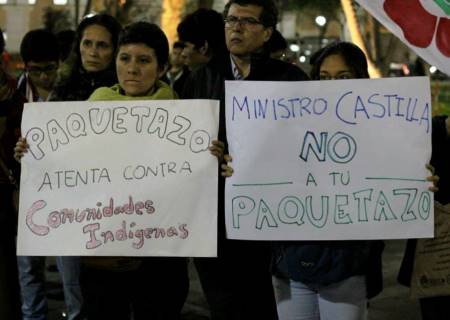
While facing the coming COP 20, Peru must rectify the extractive model that exacerbates the global climate crisis.
The Unity Pact of National Indigenous Organizations of Peru called today on President Ollanta Humala not to enact the Bill 3627/2013-PE approved
UNFCCC: The road towards COP 20 in Lima

During the recent UNFCCC Climate Change Conference in Bonn (June 4-15), the Peruvian government delegation expressed a clear commitment to facilitate indigenous peoples’ participation in the upcoming COP 20.
UNFCCC: Update from Bonn Climate Change Conference

From 4-15 June, the parties to the UN Framework Convention on Climate Change (UNFCCC) convened in Bonn, Germany. Indigenous representatives from around the world followed the negotiations and lobbied government delegations for greater inclusion, and respect for their rights and
...'Climate change should not separate us from our environment'
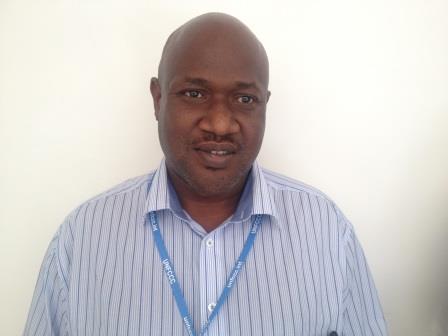
Edward Porokwa is a Maasai pastoralist and the Executive Director of the indigenous umbrella organisation, PINGOs Forum in Tanzania. He is in
Case study: The capacity of local communities to monitor biodiversity and resources in Madagascar, Nicaragua, Philippines and Tanzania

Indigenous and community-based monitoring systems is efficient, simple and cost-effective
This case study focuses on the capacity of local communities to monitor biodiversity and resources in Madagascar, Nicaragua, Philippines and Tanzania. It makes a controlled
Case study: Titling of Indigenous territories protects and increases tropical forest cover in the Peruvian Amazon.

This case study from Peru illustrates the importance of Non-Carbon Benefits (NCBs) to REDD+, and particularly the effects of land demarcation and titling of indigenous communities, its impact on governance and democracy, on social structures and livelihoods, and on environment and forest cover.
...The crucial role of Indigenous peoples in nurturing forest and maintaining forest cover - An important Non-Carbon Benefit of REDD+

There is increasing and widespread recognition that, in order to make greenhouse gas emissions reductions/removals possible and enduring in the forest sector, REDD+ must broaden its scope from a highly carbon-focused to a more holistic approach. Hence, initiatives to achieve Non-Carbon Benefits
...Russia: Komi in Usinsk district declare "The end of our patience has come"

On 5 June, a demonstration was held in Ust-Usa village in Usinsk district, Komi Republic, Russia, protesting the environmental destruction caused by LUKoil Komi and other oil companies. The protests, which started two months ago in Izhma district have now spread to Usinsk
...Russia: Sakhalin authorities and Exxon playing Divide and Conquer

The 4000 indigenous peoples living in the North of Sakhalin Island in Russia's Far East are confronted with an attempt to roll back all progress achieved during their 2005 protests. Now, the regional government refuses to recognize their representatives and scraps the most important
...Russia: Izvatas call for rally against LUKoil
Today indigenous activists have notified the administration of Izhma district, that they will be holding a protest rally in Shchelyayur on May 30 near the oil wells operated by "LUKOIL-Komi". the Izvatas are a group of the Komi people, living along the Izhma river in the North of Komi republic
...Briefing Note - Post 2015 Development Process: Women

Indigenous women face a range of problems related to the violation of their rights. This note focuses on the causes and how they can be addressed in the post-2015 development agenda. It has been prepared by the International Work Group for Indigenous Affairs (IWGIA) in collabo-ration with
...Post 2015 Development Process: Health

Indigenous peoples lack behind on health. The post-2015 development agenda offers a unique op-portunity for indigenous peoples to address what they see as key concerns and priorities. The paper is intended as a discussion paper for stakeholders in the post-2015 process and reflects on the
...Post 2015 Development Process: Inequality

Inequality is a defining characteristic of indigenous peoples’ living conditions and permeates all aspects of their lives. The post-2015 development framework and the Sustainable Development Goals (SDGs) offer an opportunity to address and minimize the inequalities faced by indigenous peoples
...Post 2015 Development Process: Education

If indigenous peoples are to enjoy their universal right to education, there are a number of constraints and concerns that need to be addressed. The post-2015 development agenda offers a unique opportunity for indigenous peoples to address what they see as key priorities and the way forward for
...Post 2015 Development Process: Energy

Indigenous peoples face severe human rights violations and exploitation of their natural resources due to energy production. The post-2015 development agenda and the Sustainable Development Goals (SDGs) offer a unique opportunity to address unsustainable energy development on indigenous
...Post 2015 Development Process: Governance
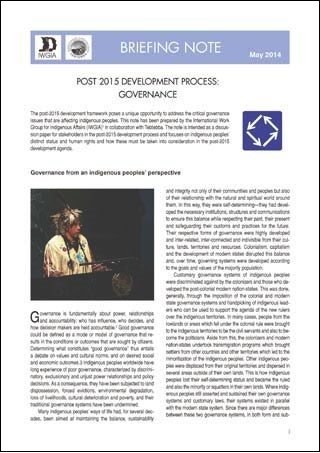
The post-2015 development framework poses a unique opportunity to address the critical governance issues that are affecting indigenous peoples. This note has been prepared by the International Work Group for Indigenous Affairs (IWGIA)1 in collaboration with Tebtebba. The note is intended as a
...The Indigenous World 2014

The 2014 edition contains a comprehensive update on the current situation of indigenous peoples in 73 articles written by indigenous and non-indigenous scholars and activists.
The book provides 58 country reports and 15 articles on international processes, reflecting ongoing worldwide
...Land Rights of Indigenous Peoples in Africa: With Special Focus on Central, Eastern and Southern Africa. Second edition - revised and updated.
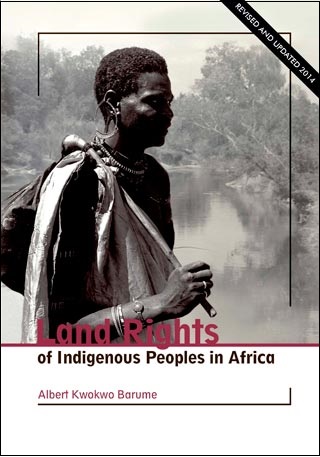
Professor of Law, Gudmundur Alfredsson writes about the first edition of Land Rights of Indigenous Peoples in Africa: "It is not only a first-class academic presentation but also a practical one, including a series of conclusions and recommendations that are highly relevant to any
...Peru: Indigenous organisations criticize the national climate change agenda
Unity Pact of Indigenous Organisations of Peru, an organisation that articulates national indigenous organisations, criticized the omission of key issues in the national agenda on climate change developed by the Peruvian government.
Russia: Khanty take action to stop road construction through sacred site by oil company

Oil workers are trying unsuccessfully to extend a road to an oil field through a sacred lichen grove and Khanty ancestral lands 180 km from Nizhnevartovsk.
Russia: Oil companies inching closer to Khanty sacred sites
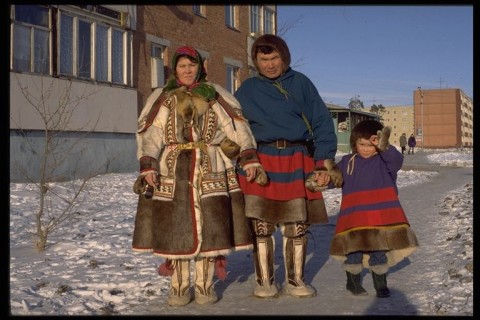
The regional parliamant of Yugra, the Khanty-Mansi autonmous area in Western Siberia, Russia’s main oil producing region, adopted during the first reading an amendment to the regional legislation on land use. Indigenous peoples fear the amendment may pave the way into
...Russia: Legislative change to demolish indigenous land rights
On 28 December 2013, in a rushed proceeding, after only two parliamentary readings, the State Duma adopted a bill amending the Federal Act “On specially protected conservation areas”, which may strip indigenous peoples “Territories of Traditional Nature Use” of any effective protection.
...Russia: "We Izhma Komi are indigenous people and this is our land"
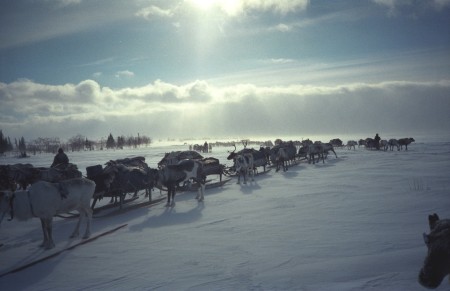
On 13 April, a meeting took place in the village of Krasnobor between residents representing 15 settlements of Izhma district and representatives of"LUKOIL" and "LUKOIL-Komi". The attempts of LUKOil representativess to "agree" privately with the leaders of civic organisations of the
...Russia: Izvatas declare oil company "Persona non grata"
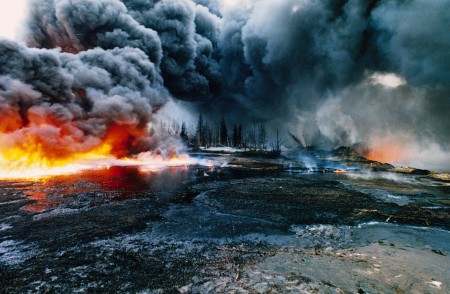
In 1994, the world’s worst ever onshore oilspill hit the district of Usinsk, just north of Izhma district in Russia. Since then, the Komi speaking ethnic group Izvatas (Komi-Izhemtsy) have viewed the oil industry’s operations with great anxiety. Recently the Izvatas gathered and issued
...We Have Rights: A Community Guide for Indigenous Peoples on the 2009 ADB Safeguard Policy Statement and Accountability Mechanism
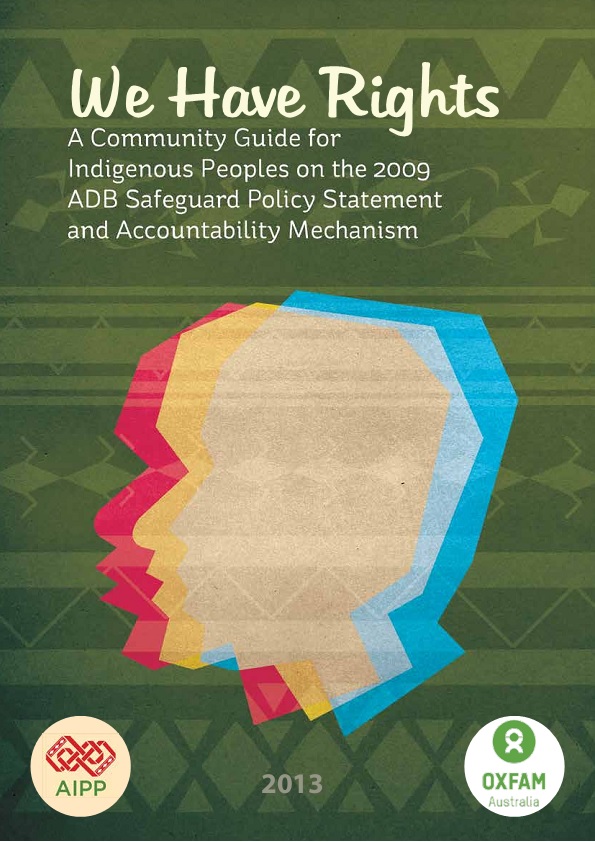
This guide is a tool for advocacy work and community actions. It focuses on the Asian Development Bank Safeguard Policy Statement of 2009 (ADB 2009 SPS) particularly its safeguard requirements for Indigenous Peoples. In addition, it features the ADB Accountability Mechanism of 2012 and contains
...Indigenous Peoples and Climate Change Adaptation in Asia

This briefing paper draws on Indigenous Peoples’ issues and concerns relating to climate change adaptation. It analyses two cases: the adaptation practices among the Tangkhul Naga Community in the North Eastern Region of India and the traditional adaptation practices of Pidlisan-Kankanaeys of
...Briefing paper on REDD+, Rights and Indigenous Peoples: Lessons from REDD+ Initiatives in Asia
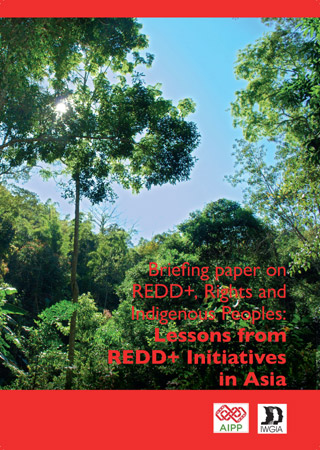
This briefing paper aims to outline the lessons learn from the Cancun Agreement and explores how far the REDD+ countries in Asia have advanced in addressing social and environmental issues in their REDD+ strategy drafting. From asking which experiences indigenous peoples have made so far in
...REDD+ Implementation in Asia and the Concerns of Indigenous Peoples

This report provides an overview on indigenous peoples in five of REDD+ countries in Asia: Indonesia, Nepal, Vietnam, Laos and Thailand, together with the status of the program’s implementation in each one. The report also elaborates on the concerns of indigenous peoples in the current
...STAY CONNECTED
About IWGIA
IWGIA - International Work Group for Indigenous Affairs - is a global human rights organisation dedicated to promoting and defending Indigenous Peoples’ rights. Read more.
For media inquiries click here
Indigenous World
IWGIA's global report, the Indigenous World, provides an update of the current situation for Indigenous Peoples worldwide. Read The Indigenous World.
Contact IWGIA
Prinsessegade 29 B, 3rd floor
DK 1422 Copenhagen
Denmark
Phone: (+45) 53 73 28 30
E-mail: iwgia@iwgia.org
CVR: 81294410
Report possible misconduct, fraud, or corruption
| |
|
|


